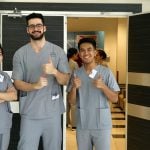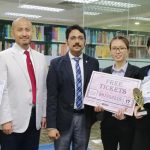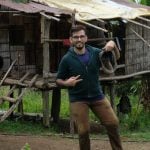Internship placement has always been a compulsory attachment for IMU Medical Biotechnology students in their final year of study. I was very honoured and fortunate to be given the opportunity to undergo my internship at Duke-NUS Medical School under the Division of Neuroscience and Behavioural Disorders Research Laboratory in Singapore for a duration of 3.5 months. I choose neuroscience as the focus of my internship as this is an area that I have been interested in since I was in high school due to its high degree of complexity, that involves the study of nervous system, controlling not only our learning and memory, but also our behaviour, perception, thoughts, emotion and movements as well as consciousness. I had the privilege to join the research team of Prof Tan Eng King, a senior consultant neurologist in Singapore General Hospital and National Neuroscience Institute. Throughout my internship, I was under the supervision of Assistant Professor Dr Zhou Zhi Dong. Both of them have many years of experience in the field of neurosciences. Dr Zhou is a prestigious researcher in the field of neuroscience and his research interest is mainly focused on the Parkinson’s disease involving the pathogenesis and possible therapy to dopaminergic neuronal degeneration. Neurodegenerative disorders have been a global burden disease that affects millions worldwide. Even though treatments currently available have greatly helped in relieving the symptoms, there is still no way to slow down the progression or even to cure the disease. 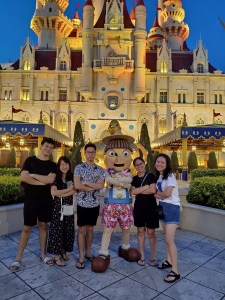 The internship saw me working on experiments involving neuroblastoma cells and some stable cell lines with mutation genes which have been used on a lot of Parkinson’s disease studies. This has led to me learning various skills which included tissue culture techniques, transfection, performing treatment by using different drugs, Hoechst staining, TMRE staining, propidium iodide staining, Presto Blue assay as well as western blot to determine the optimal drug’s concentration that provides protective effect and also drug’s concentration causes toxic effect when oxidative stress was induced manually. There were lots of challenges and difficulties that I encountered on this project as the neuroblastoma cells that I was working on were very sensitive especially after transfection. I learned the importance of discussing the challenges with both my supervisors as well as his research assistant as I progressed with protocols having to be modified again and again to achieve better outcomes as well as to ensure that my experiments progress smoothly.
The internship saw me working on experiments involving neuroblastoma cells and some stable cell lines with mutation genes which have been used on a lot of Parkinson’s disease studies. This has led to me learning various skills which included tissue culture techniques, transfection, performing treatment by using different drugs, Hoechst staining, TMRE staining, propidium iodide staining, Presto Blue assay as well as western blot to determine the optimal drug’s concentration that provides protective effect and also drug’s concentration causes toxic effect when oxidative stress was induced manually. There were lots of challenges and difficulties that I encountered on this project as the neuroblastoma cells that I was working on were very sensitive especially after transfection. I learned the importance of discussing the challenges with both my supervisors as well as his research assistant as I progressed with protocols having to be modified again and again to achieve better outcomes as well as to ensure that my experiments progress smoothly.  My internship has been an invaluable experience for me, as not only were the practical skills learnt during the internship fruitful, but I have also seen improvement in my interpersonal and collaborative skills throughout this attachment. My skills in communication, critical thinking, problem solving, workflow planning and team working have improved as well. Nevertheless, time management has been the most important skill I acquired as I was occasionally required to work during weekends and public holidays. Thus, without good management and planning, it would have been tough for me to complete my experiments on time. At times, it was stressful and I was overwhelmed as my supervisor would expect the results and data frequently with workload doubling up from time to time. However, I enjoyed every single moment at this research lab as I treated all the difficulties and failures as learning experiences for me. I am very grateful that I have the opportunity to experience such a hectic research life. Apart from working, I also have free time to explore Singapore’s local food and cultures with friends by visiting their museums and gardens, temples, local food centres as well as some popular tourist attractions. It was fun and interesting as we are always joking around and taking plenty of photos together as we travel.
My internship has been an invaluable experience for me, as not only were the practical skills learnt during the internship fruitful, but I have also seen improvement in my interpersonal and collaborative skills throughout this attachment. My skills in communication, critical thinking, problem solving, workflow planning and team working have improved as well. Nevertheless, time management has been the most important skill I acquired as I was occasionally required to work during weekends and public holidays. Thus, without good management and planning, it would have been tough for me to complete my experiments on time. At times, it was stressful and I was overwhelmed as my supervisor would expect the results and data frequently with workload doubling up from time to time. However, I enjoyed every single moment at this research lab as I treated all the difficulties and failures as learning experiences for me. I am very grateful that I have the opportunity to experience such a hectic research life. Apart from working, I also have free time to explore Singapore’s local food and cultures with friends by visiting their museums and gardens, temples, local food centres as well as some popular tourist attractions. It was fun and interesting as we are always joking around and taking plenty of photos together as we travel.
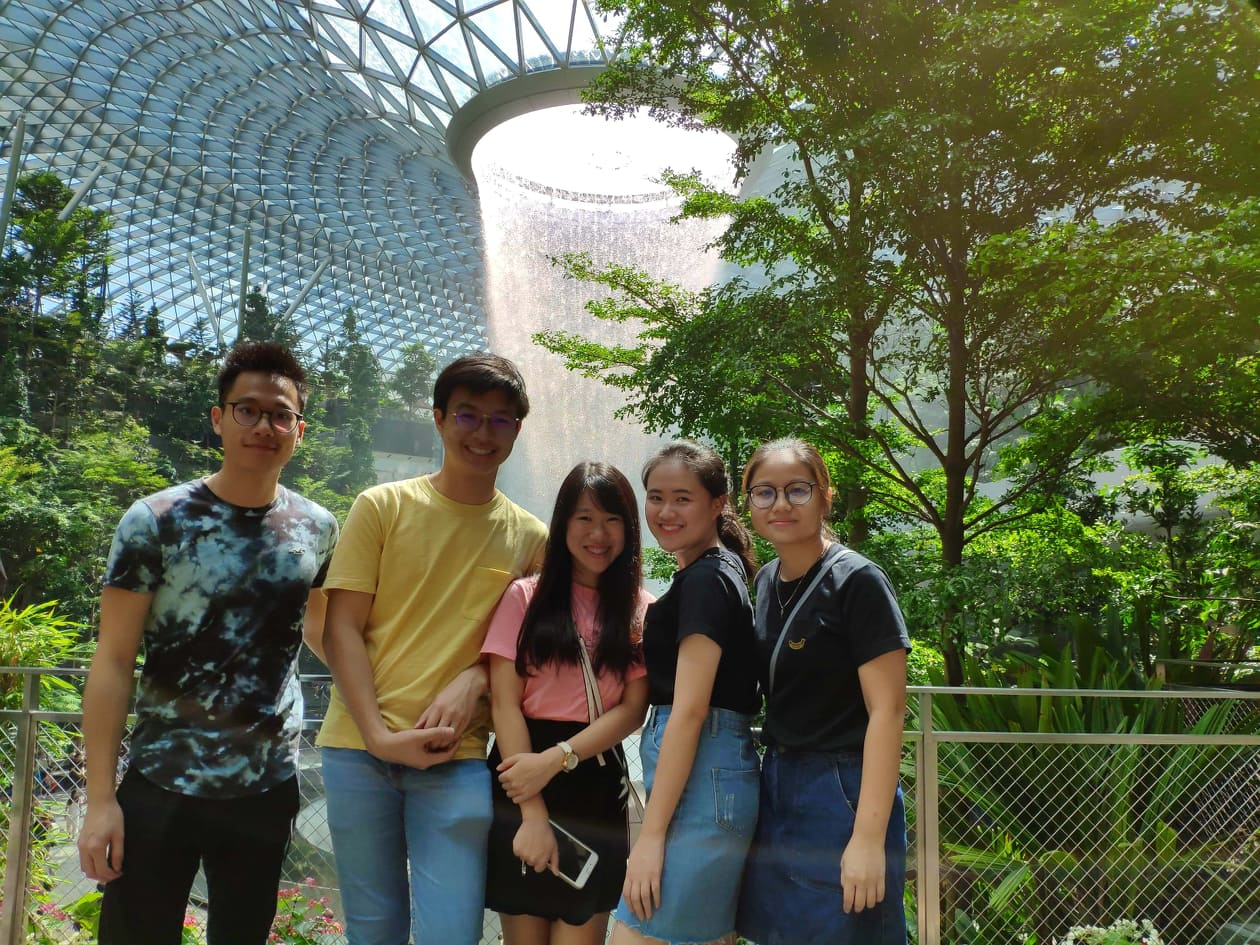
In a nutshell, this internship has provided me an awesome experience, and memories. It has definitely opened up my horizons. I am truly grateful that I studied the IMU Medical Biotechnology programme, which has prepared me well for my internship through lectures, practicals and OSLE (Objective Structured Laboratory Examination) and equipped me well with a good foundation of knowledge in medical biotechnology field as well as laboratory skills. I would like to take this opportunity to thank my parents who are always being extremely supportive when I decided to explore an internship overseas alone. Last but not least, life without challenges is boring. To live the life to the fullest, we have to accept, adapt, cope and solve all the challenges that come along the way. Written by Priscillia Choy Sze Mun (MB116) Photos by Priscillia Choy Sze Mun (MB116)





